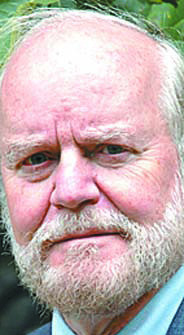Quid De Cogitatione? Glenn Rose
From time to time I am asked what sources I use for news and information.
My most important and reliable sources are my own eyes and ears. Even then, I may be forced to do a double take, lest I miss the real meaning of the event.
I may need reflection and research to discover the nuances and subtleties that might give depth and understanding to what I observed and heard, or at least what I thought I observed and heard.
Things aren’t always what they appear to be. The surest “fact” should never be free from scrutiny.
Compounding the difficulty in the search for the truth, we can’t possibly observe firsthand every event that impacts our lives and the lives of others.
Circumstances sometimes require accepting what we haven’t seen or heard in person. I’ve never seen China, but I’m willing to accept that most of the secondhand information I’ve seen and heard over the years is proof enough that it exists.
What’s more daunting than keeping up with all the events worldwide that happen in our lifetime is that period called “’Recorded history’ [referring] to the period of time where historical events were documented through written records, essentially marking the beginning of human history … it signifies the events of the past that have been captured in a written form, allowing historians to analyze them using the historical method.” A period of only 6,000 years!
So says Wikipedia, now adding the term “historical method,” to be equally scrutinized.
The earliest known possible Homo sapien fossils were found in Morocco and date back to about 315,000 years ago.
The age of the Earth is believed to be 4.543 billion years. “The oldest known fossils are cyanobacteria found in 3.5 billion-year-old rocks in Western Australia, although evidence of older bacteria date back to 3.7 billion years.”
The “Standard Model” of cosmology sets the age of the Universe at 13.8 billion years. However, scientists studying data from the James Webb Space Telescope have found numerous galaxies that appear even older, giving rise to a new theory that the universe is possibly 26.7 billion years old.
“Prehistory” – 13.8 billion years (or 26.7 billion years using the newer calculation) less than the 6,000 years of “recorded history” – where the principal evidences are fossils and geology, we only have the studies of anthropologists, archaeologists, paleontologists, geologists, astrophysicist, meteorologists, climatologists, and a host of other scientists curious to ferret out the facts of what happened. And even more challenging, what will happen.
I realize there are people who think “recorded history” is all there is to life on Earth, ignoring fossil and geological evidence to the contrary.
There are still people who believe the Earth is flat, and that life-saving vaccinations are a hoax!
I trust science. It’s a competitive endeavor. Scientists seek to duplicate what is postulated by other scientists and challenge theories that can’t pass careful examination.
I trust that ideas that can’t survive the scientific method of validation are debunked and discarded. Those of us who don’t understand the language of science just have to wait for a fathomable translation.
We can’t control the past. We can only learn from it.
We can’t control the future. We can only plan for it.
Only in a democracy can we control and plan our own lives.
In a democracy that is our right. But in a democracy it also is our responsibility.
We have two eyes for depth perception and two ears for detecting sound direction.
Both give us vital information.
Imagine the handicap of Polyphemus the Cyclops with only one eye. Or the visual skill of Argus the Giant with a hundred eyes.
Yet how many free people use only one source for their news?
How many people forego their own good judgment and believe what they hear and see from only one place?
How many people take for their consideration the musings of someone who only speaks from one color of the spectrum and without offering sources for his or her speculations?
Without validation, without vetting one’s information one is only aimlessly disseminating falsehoods.
(If I manage to travel to Asia one day and see that there is no such place as “China” I’ll have to admonish myself for my own gullibility.)

.jpg)

